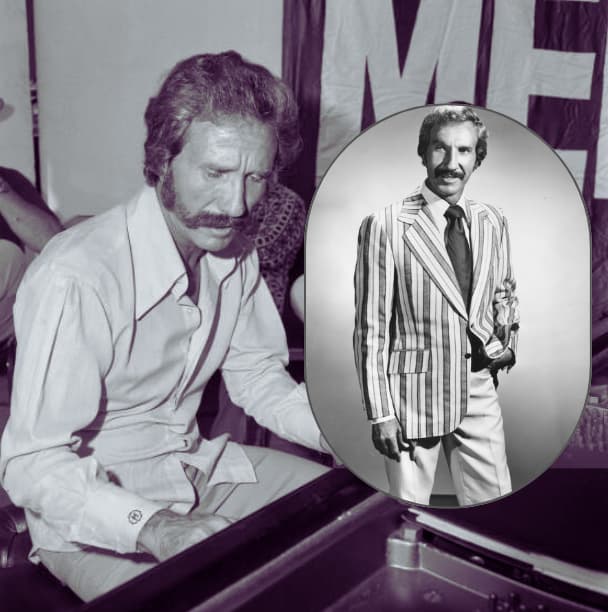
A Lonesome Echo of the Old West: The Ballad of Bill Thaxton
Ah, the year 1976. A time when the echoes of the American Bicentennial still resonated, and for many of us, the familiar comfort of classic country music was a constant companion on the radio waves. It was in this landscape that a particular tune, perhaps less celebrated than some of its brethren but no less poignant, quietly made its mark: Marty Robbins‘ “The Ballad of Bill Thaxton.” While it might not have scaled the dizzying heights of the pop charts, “The Ballad of Bill Thaxton” found a respectable home on the country music charts, peaking at number 10 on the Billboard Hot Country Singles chart. For those of us who followed country music closely, a top ten hit from Marty Robbins was always a welcome event, a testament to his enduring appeal and masterful storytelling.
But chart positions, while interesting, rarely tell the whole story, do they? With Marty Robbins, the true essence always lay in the narrative, the way he could transport you to another time and place with just his voice and a simple melody. “The Ballad of Bill Thaxton” is a prime example of this unique talent. It’s a song that, upon first listen, wraps around you like a well-worn blanket, drawing you into a tale that feels as ancient and enduring as the Western landscapes Robbins so often sang about. The story, as the title suggests, revolves around a character named Bill Thaxton, a figure who embodies the solitary and often tragic existence of a gunslinger in the fading days of the Old West. It’s a somber reflection on the life choices made, the reputation earned, and the ultimate price paid for a life lived by the gun.
The genius of Marty Robbins was his ability to imbue these characters with a profound sense of humanity, even when their lives were defined by violence. Bill Thaxton isn’t a caricature; he’s a man burdened by his past, a product of a harsh environment, seeking, perhaps, a redemption that may never come. The lyrics paint a vivid picture of a man who, despite his formidable reputation, is ultimately alone, haunted by the specter of those he’s faced. There’s a deep sense of melancholy woven throughout the song, a feeling of inevitable doom that hangs heavy in the air. It’s a narrative that speaks to the cyclical nature of violence and the inescapable consequences of one’s actions, particularly in a world where justice was often meted out with a swift draw and a smoking barrel.
Beyond the immediate narrative of Bill Thaxton, the song carries a deeper meaning that resonates with anyone who has ever felt the weight of their own history. It’s about the burdens we carry, the reputations that precede us, and the quiet desperation that can accompany a life lived on the fringes. For older listeners, it evokes a powerful sense of nostalgia for a bygone era, a time when the West was still wild and the legends of its heroes and villains were etched into the very fabric of American folklore. Marty Robbins, with his authentic delivery and deep understanding of Western lore, was the perfect conduit for such a tale. He didn’t just sing about cowboys and gunfights; he lived them through his music, bringing them to life with a sincerity that was unmatched.
“The Ballad of Bill Thaxton” was released on Robbins’ album El Paso City in 1976, an album that further solidified his reputation as the quintessential singing cowboy. While the title track of that album might be more widely recognized, “The Ballad of Bill Thaxton” stands as a testament to Robbins’ consistent ability to craft compelling, character-driven narratives. It’s a song that reminds us that even within the grand tapestry of the Old West, there were countless individual stories, each with its own triumphs and tragedies, its own moments of glory and despair. And in Marty Robbins‘ capable hands, these stories found their voice, echoing through the years and reminding us of a time that, though long past, still holds a powerful grip on our collective imagination. For those of us who grew up with his music, “The Ballad of Bill Thaxton” isn’t just a song; it’s a memory, a feeling, a poignant reminder of the enduring power of a master storyteller and the timeless allure of the American West.